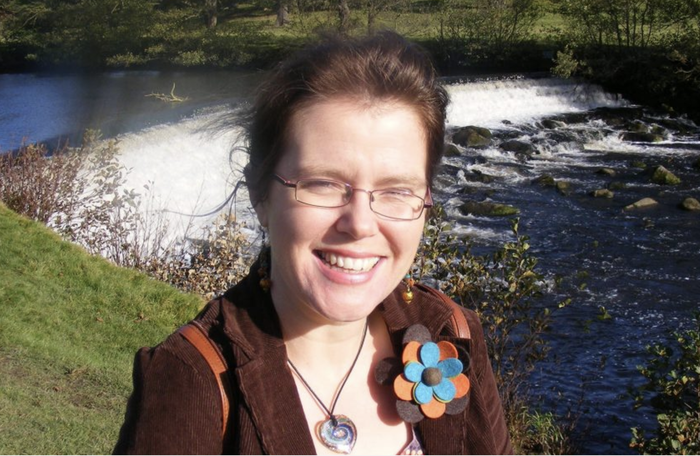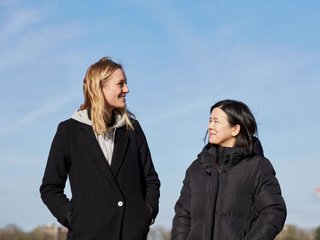The right time to change my working life
Joanna was originally diagnosed with chronic myeloid leukaemia (CML) in August 2010 when she was 41.

Joanna was originally diagnosed with chronic myeloid leukaemia (CML) in August 2010 when she was 41.
When I was first diagnosed, the doctors said, “Yes, you can live with this.” I’d just started a new job at the YMCA. I’d wanted to work there for a while, and it was exciting. I’d been there just two months when I found out I had blood cancer.
It was a real shock. I was concerned about money and whether I’d still be employable. But the YMCA were supportive and helpful throughout. Initially, I had a fair bit of time off for hospital trips. After that, I returned to pretty much full-time working.
I found that keeping busy was more helpful than ruminating. I was trying to be normal but actually, there was still so much to try and get my head around. Life was far from normal.
Facing unexpected change
Then I found out my cancer had a rare mutation and I was going to have to go in for a stem cell transplant. That meant quite a different scenario, I was really anxious, but I was optimistic. I thought I’d be back at work in six months.
Unfortunately, that didn’t happen for me. I relapsed soon after my transplant and had to urgently try other treatments. Because of that I had problems with my immune system, and I couldn’t return to work.
After about two years of the YMCA holding my job open for me, we mutually agreed that I couldn’t return. We parted on good terms, and I had a leaving do and everything, so it was all very sweet and everyone was very kind.
I had to apply for benefits and that was a really hard thing. At first, I felt quite ashamed – not that I’d judge anybody else – but I’ve worked throughout my adult life. Friends encouraged me and said, “No, you’re entitled to claim this.”
Changing direction
I started doing a morning a week volunteering in our local theatre, posting information on websites and saying what shows we had coming up.
But I wanted to have more to focus on and found out about an introduction to counselling course. I mulled it over with a couple of friends and family members. They said I’d be great at it because they always talk to me about their problems!
I also talked to my consultant, as I was feeling uncertain about whether I would still be here in a few years. Is there any point in doing this if I’m on the way out anyway? My consultant said, “Let’s work on the basis that you will still be here.”
I was worried about getting into debt, but the college allowed me to do the course part time. That meant a reduction of fees, and it was much better for my health. Plus, one of my friends helped me get funding from a few charities. A family member funded part of it as well.
Even though I again relapsed and had to have treatment during the course, I got through it. I got my counselling degree three years later, so I was really chuffed about that.
Getting back to work
A local mum had set up a charity, ‘In Charley’s Memory’. I started volunteering there and basically created a part-time post for myself, setting up a counselling service for young people within the charity. Now they’ve got 17 counsellors.
I was working there until summer 2018. At this time the drug I had to take to control the leukaemia was causing more complex side effects, and I was really pushing myself and feeling quite worn out. So I took the decision to step away from the charity.
Setting up my own business
I’d always thought about setting up a private counselling practice and it felt like the right time. That’s been going for a year now. I run it from home, which means I can pace myself.
I know about counselling but having to do business plans and set up marketing strategies and register for tax was all new to me. I asked myself, “What am I doing here with all this?”
I was getting Personal Independence Payments (PIP) and Universal Credit, and through that I was able to join a business start-up scheme. I got mentoring and a little bit of extra money while I was setting it up.
I’m upfront with people about my health issues, and sometimes I have to cancel with short notice because of unplanned hospital appointments.
Looking after myself
I still have a spiritual advisor, and he’s very good about talking to me about pacing myself and just ‘being’ rather than ‘doing’. I managed to have a lovely holiday in Cornwall in September through a women’s charity. That gave me a few days away to just think.
Sometimes I feel guilty that I am not doing as much as I should be. When I start thinking that way, I give myself a talking to: “It’s OK – I am doing the best I can.” I’ve got more compassionate with myself as time’s gone on.
My advice to others is to try and be realistic about what you can do. I know now I put too much pressure on myself to get back to normal.
Feeling positive about change
I feel very privileged to be able to do the work I do – supporting people when they’re going through difficult times and being able to do it from home.
I didn’t envisage I’d be in this situation, but I now feel that counselling is my vocation. It makes sense for me and for the life I need now.
Janssen-Cilag Ltd has supported Blood Cancer UK with funding for the production of this web page and others within the ‘Living well’ section. It had no influence over the content.

Share your story about living well
Your experience can help others with blood cancer
